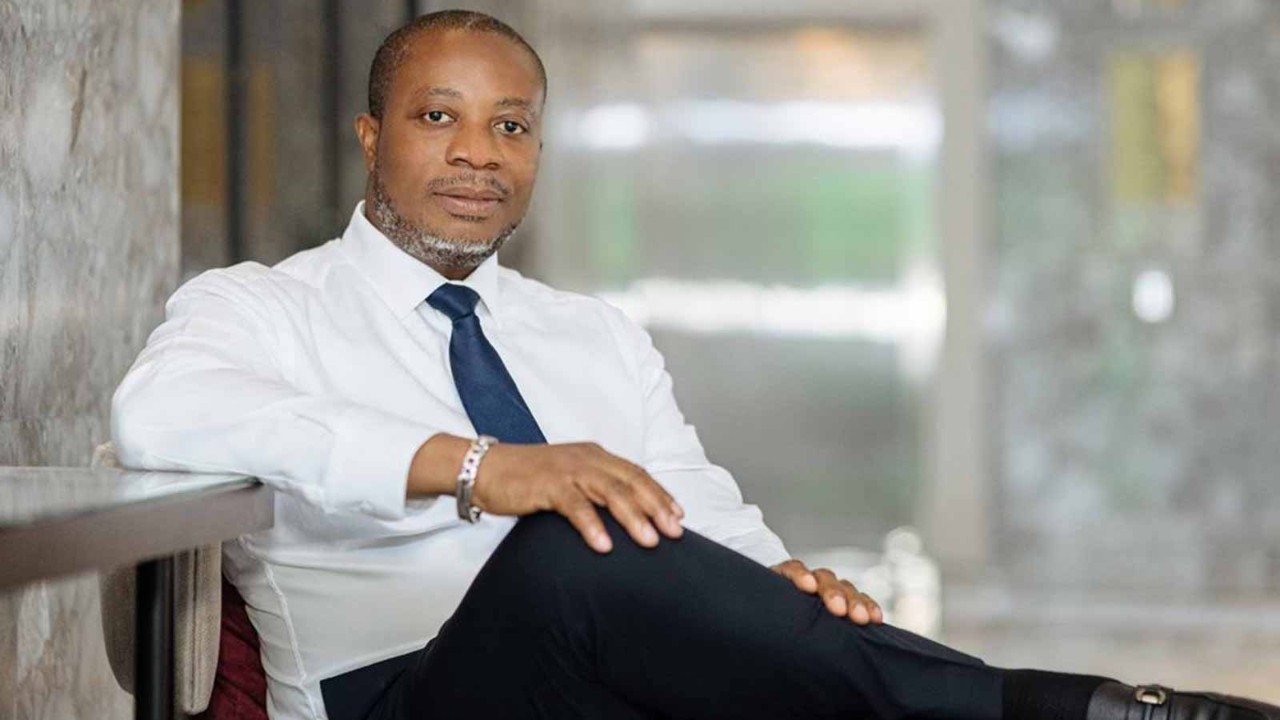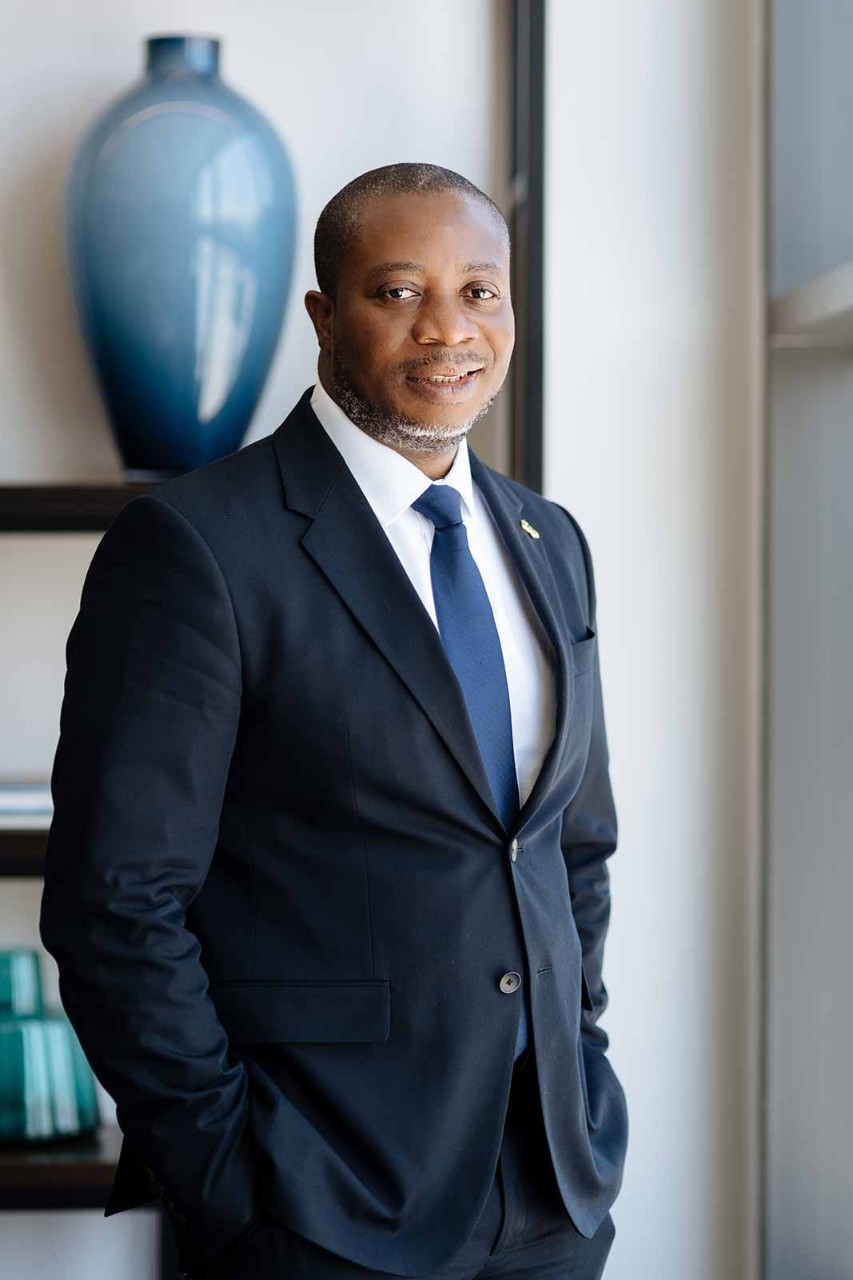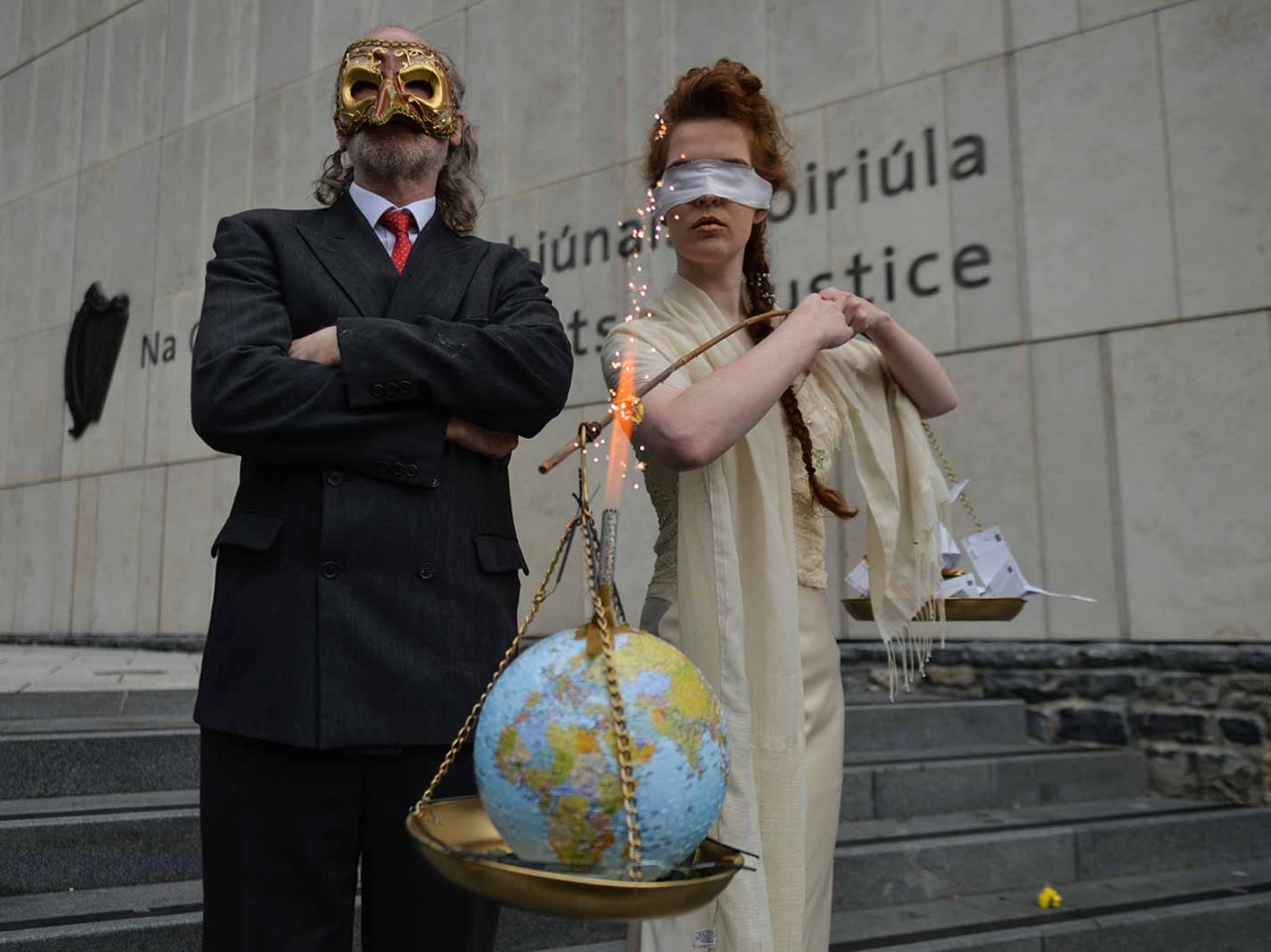
Football can unite and divide like no other sport – it brings people together through a common love of the game, while team and country allegiances can generate the fiercest of rivalries.
So as the footballing nations of the world gather in Qatar this month in pursuit of World Cup glory, spare a thought for those working feverishly behind the scenes not only to ensure a successful tournament, but also to build on the momentum such international occasions can create for regional and national competitions.
'Football unites men, women and children across the globe in a shared passion'
CV
2021
Director of finance, Confederation of African Football, Egypt
2016
Head, Global Finance Services Accra and head, Plan to Perform Africa, Standard Chartered Bank, Ghana
2006
Head of reporting, then head of finance (2008), West Africa Shared Service Centre, Standard Chartered Bank, Ghana
2004
Auditor, EY, Ghana
One such person is Richard Torsu FCCA, a former investment banker who has for a year now been director of finance at the Confederation of African Football (CAF). CAF is the controlling body for the 54 national football associations on the continent and one of the six continental confederations of world football governing body Fifa, the ultimate organiser of both the men’s and the women’s World Cup football competitions.
‘As one of the six confederations, CAF is a microcosm of Fifa on the African continent,’ Torsu explains. 'It supports the development of talents and governs the organisation of national and continental tournaments in Africa, as Fifa does at the global level.'
Citizen of Africa
This year, five African nations will be represented at the World Cup in Qatar – Cameroon, Morocco, Tunisia, Ghana and Senegal. Although Torsu is originally from Ghana, he declares himself ‘a citizen of Africa’ and says he will be proudly cheering on all the teams.
Since becoming CAF’s FD in November 2021, Torsu's work has focused on restructuring the finance department and strengthening it with accounting professionals, providing leadership and direction, as well as engaging with stakeholders and regulatory bodies in the CAF headquarters based in Cairo.
Good progress has been made in creating finance unit workstreams for accounting operations, financial accounting, management reporting and operational risk controls, which Torsu expects to 'bring back good governance, effective controls and financial stability to the organisation'.
The finance team is now well diversified, he explains, with a mix of qualified accounting professionals from CAF member nations across the continent and a good number of part-qualifieds at various stages on their professional journey.
Finance responsibility also includes managing the revenue portfolio of the growing commercial interest in African football following recent sponsorship agreements with TikTok, Binance and Umbro, as well as major television broadcasting deals with beIN Sports, TotalEnergies, the BBC, SuperSport, 1XBET, StarTimes and several others.
'Information flow is a challenge in parts of the organisation, but once we roll out our digital platform I am confident this will improve'

Uniting people
‘Football has grown beyond just a sport,’ Torsu says. ‘It has created and continues to create employment and infrastructure development across markets where major competitions and tournaments are held, and it unites men, women, and children across the globe in a shared passion. Surely this will be showcased in Qatar.’
On the pitch, as well as running the qualifying rounds that whittled the continent’s teams down to the final five now in the Gulf for the World Cup, CAF organises the men’s and women’s Africa Cup of Nations, the African Nations Championship, and even the Africa Beach Soccer Cup of Nations. It also runs the CAF Champions League, the club competition for national league winners, plus a host of other club and youth competitions.
To be able to develop and promote the game successfully, the organisation needs to ensure it is in a financially sound position. Torsu’s appointment is part of a wider organisational push to recruit highly qualified professionals into high-level positions.
‘My job of course involves managing direct reports, finance processes, stakeholders, but my priority is to provide guidance on strategic finance matters to CAF's general secretary, Véron Mosengo-Omba,’ Torsu says. ‘Not a day goes by without me speaking with him, because he needs to know our financial direction.’
As a member of CAF’s board of directors, Torsu also updates his fellow board members on the state of CAF’s finances. ‘For me, that is the most exciting aspect of the role, making sure that people hear and take on board the advice we are giving.’
Of course, getting hold of the right information in the first place can be a challenge. To this end, Torsu is guiding the organisation through a transition in its financial reporting platforms, which will see it move from a semi-automated platform to one that is fully digitised.
‘Information flow is a challenge in parts of the organisation, but I am positive that once we roll out our digital platform, our finance operations and reporting will be streamlined,’ he says.
The next phase of the rollout will bring on board the 54 member associations. ‘The benefit of this will be huge for the football fraternity in Africa,’ he says.
'I really think that Ghana could pull off a surprise in Qatar'
CAF in numbers
54
Countries represented by Confederation of African Football
5
African teams playing at the 2022 World Cup in Qatar
1957
Year of foundation
US$16.2m
Support given by CAF to its member organisations during the pandemic
US$104m
Income from competitions, Fifa and others (June 2021)
US$152m
Total expenditure (June 2021)
Education boost
Torsu’s accountancy career began with a degree in accountancy and economics at the University of Ghana back in 1994. He subsequently relocated to the UK, where he reinforced his education with an MBA in accounting at the University of Hull, followed by two years studying for the ACCA Qualification in Croydon with the London College of Accountancy.
‘ACCA is an internationally recognised qualification,’ he says. ‘I knew it would help me get a job.’ Indeed, a month after qualifying, he was able to move back to Ghana and take up a position with EY.
From there, he joined Standard Chartered Bank in its West Africa shared service centre as head of reporting. ‘I spent a decade and a half with the bank,’ he says. ‘I never intended to stay that long, but time flies.
‘I had the opportunity to become head of finance for the west Africa region in 2008, leading a team of 25 finance professionals, and overseeing six markets in West Africa.’
Then, in 2016, he was promoted to head of the bank's Plan to Perform Africa team, with a footprint in 14 markets. During this time, he in effect had two roles as he was also a location head in the global finance services wing of the bank based in Ghana and played a key role in the digitisation of many finance processes and reports.
Then Covid-19 struck. Working from home, Torsu took a step back to reassess his career options. It was at this point that the CAF opportunity presented itself, and he saw the chance to move from dealing with 16 markets to working with 54 different countries. 'I knew this would be a challenging role but an exciting one, with opportunities to create networks across the continent, and so it has turned out. I have no regrets.'
The only downside was that he was required to relocate to CAF’s headquarters in Cairo, Egypt. But, he says, moving and settling in Cairo was made easier by having worked in diverse cultures in the past. 'It was a sacrifice worth making, and I am lucky that my family is able to come and visit.’
With five African teams competing at the World Cup, including his home country of Ghana, Torsu is in optimistic mood. As he says: ‘I am very proud that we have been able to present five teams, and I really think Ghana could pull off a surprise.’
With odds of 150/1 for Ghana reaching the final, that might be a stretch. But if Senegal, Africa’s best chance of clearing the group stage, should make it through, Torsu can be satisfied that he played an important part in getting them there.
Top tips
- If you want to build your career, you must build your capacity, both in technical and soft skills.
- Engage with people as much as you can, building relationships as you progress, and always speak up and show interest when an opportunity comes up.
- If you want to be seen as a leader, be ready to make changes. How you relate to other people and support them in their careers is equally important.


